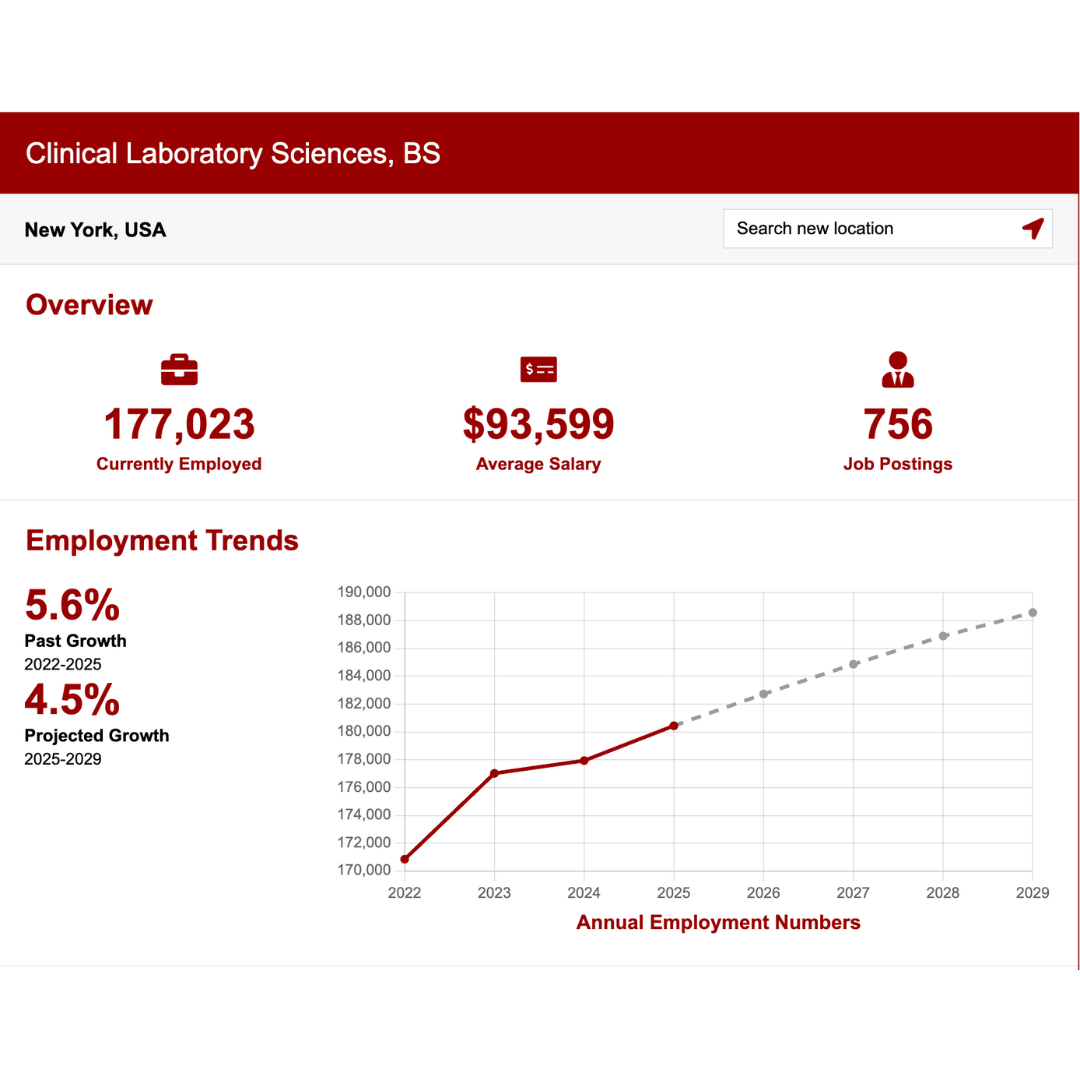Becoming a Clinical Laboratory Scientist: Your Guide to Salary, Degree, and Job Information
Have you ever wondered who's behind the scenes ensuring the accuracy of your medical test results? That's where clinical laboratory scientists (CLS), also known as medical laboratory scientists, come in. These essential healthcare professionals are the unsung heroes, providing crucial information that doctors rely on for diagnosis and treatment.
What Do Clinical Laboratory Scientists Do?
Clinical laboratory scientists perform complex laboratory tests on blood, tissue, and other bodily fluids. They analyze samples to detect diseases, monitor treatment effectiveness, and ensure blood compatibility for transfusions. Their work encompasses a wide range of specialties, including:
- Hematology: Analyzing blood cells and diagnosing blood disorders.
- Microbiology: Identifying bacteria, viruses, and fungi.
- Clinical Chemistry: Measuring chemical components in blood and other fluids.
- Immunology: Studying the immune system and detecting antibodies.
- Blood Bank/Transfusion Services: Ensuring safe blood transfusions.
- Molecular Diagnostics: Utilizing molecular techniques like PCR to detect genetic abnormalities and infectious diseases.
Essentially, CLS provides the data that forms the foundation of modern medical practice.
What is a Clinical Laboratory?
A clinical laboratory is a facility where tests are performed on clinical specimens to obtain information about a patient's health. These laboratories can be found in hospitals, clinics, research institutions, and independent testing centers.
Biomedical Science vs. Clinical Laboratory Science: Understanding the Difference
While both fields are related, there are key distinctions:
- Biomedical Science: Focuses on the broader study of biological processes and diseases, often involving research and development. Biomedical scientists may work in research labs, pharmaceutical companies, or academia.
- Clinical Laboratory Science: Is more directly involved in analyzing patient samples and applying laboratory tests in a clinical setting. CLS works directly with the data generated from these tests to provide information used in the diagnosis and treatment of patients.
Biomedical science often conducts the research behind tests, and clinical laboratory science is the practical application of those tests.
How Long Does it Take to Get a CLS Degree?
A bachelor's degree in clinical laboratory science or a related field is typically required, which usually takes four years. For example, Stony Brook University offers a focused, full-time (2-year) upper-division bachelor's degree program in Clinical Laboratory Sciences designed to prepare students for immediate entry into the field.
Some programs offer accelerated options or post-baccalaureate certificates. Additionally, employers often prefer or require certification from organizations like the American Society for Clinical Pathology (ASCP) and individual states like NY for example can require state licensure as well. Individuals looking to practice in NYS will need to be licensed by the New York State Department of Education as a Clinical Laboratory Technologist.
What Major is Best for Clinical Laboratory Science?
A bachelor's degree in Clinical Laboratory Science is the most direct path. However, related majors like biology, microbiology, or chemistry can also provide a strong foundation. For example, after completing prerequisite courses, students can apply to programs like Stony Brook University. In addition, entering freshman at Stony Brook can pursue declaring CLS and if accepted as a CLS freshman declare major and they successfully meet all of the requirements they are offered a seat in the program automatically. Stony Brook University's program includes robust didactic instruction and clinical experience, guiding students toward becoming competent and registered Clinical Laboratory Scientists.
Stony Brook University CLS Program Highlight:
Stony Brook University's program is notable for its:
- Rigorous 2-year, full-time curriculum, preparing graduates for immediate professional practice.
- Emphasis on developing professional conduct, problem-solving skills, and a strong foundation in quality assurance.
- Eligibility for the National MLS ASCP Board of Certification Exam and New York State Licensure.
- The Phlebotomy Training Program provides a working knowledge of blood collection procedures and eligibility to take the national certification examination for phlebotomy through the American Society for Phlebotomy Technicians (ASPT).
- Guidance from dedicated clinical scientists, supervisors, and managers.
How Much Do Medical Laboratory Scientists Earn?
The salary of a medical laboratory scientist can vary based on location, experience, and certifications. According to recent data, the average annual salary is competitive. It is essential to look at local data for the most accurate information. According to the U.S. Bureau of Labor Statistics, the median annual pay for a clinical lab scientist was $60,780 in 2023.
If you are interested in finding out the average income for a CLS in your area, check out this interactive chart created by Stony Brook University.

Where do CLS get paid the most?
Generally, areas with a higher cost of living, such as major metropolitan areas and certain states like California, Alaska, and some northeastern states like New York, tend to offer higher salaries. Factors like experience, certifications, and specialized skills also play a role.
Is a Degree in Clinical Laboratory Science Worth It?
Absolutely! A career as a clinical laboratory scientist offers:
- Job Stability: The demand for qualified CLS is consistently high.
- Meaningful Work: You'll play a vital role in patient care.
- Variety and Growth: The field offers opportunities for specialization and advancement.
- Reasonable Compensation: The salary is competitive and offers good benefits.
If you're passionate about science and making a difference in healthcare, a career in clinical laboratory science is a rewarding choice.
Explore a Career in Clinical Laboratory Science
Clinical laboratory scientists are essential members of the healthcare team, providing critical information that impacts patient lives. Programs like the one at Stony Brook University offer comprehensive training, ensuring graduates are well-prepared for this vital role. If you're considering a healthcare career, explore the dynamic and rewarding field of clinical laboratory science.

